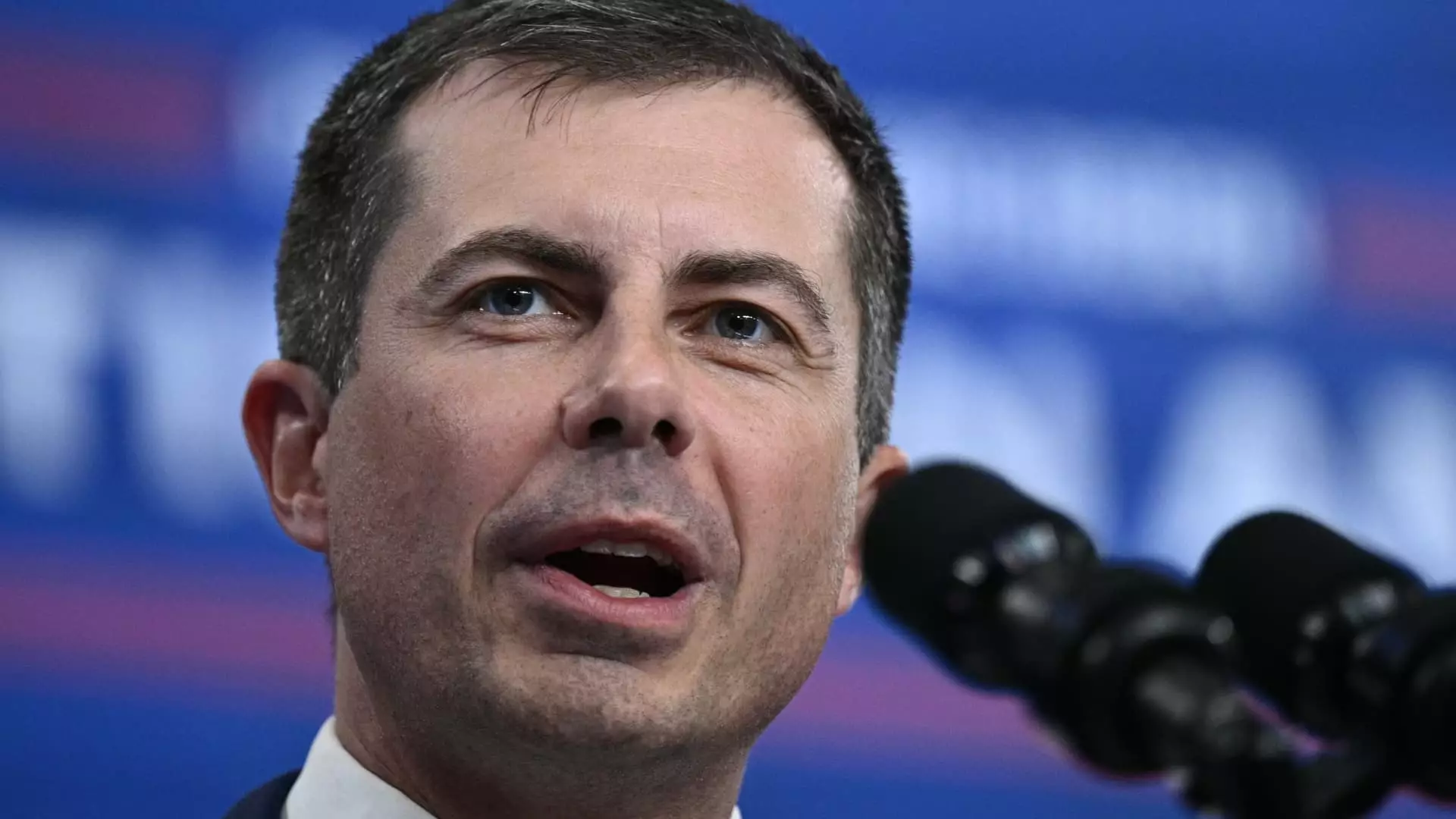In the age of social media, where powerful voices can shape narratives at an unprecedented speed, the intersection of technology, politics, and humanitarian efforts often becomes contentious. A recent interaction between Transportation Secretary Pete Buttigieg and billionaire entrepreneur Elon Musk showcases this complex dynamic, particularly following the aftermath of Hurricane Helene. Musk, known for his influential presence on social media and a follower count exceeding 200 million on X (formerly Twitter), took to the platform to propagate what turned out to be false claims regarding federal airspace regulations and disaster relief efforts. This incident encapsulates broader themes of misinformation, accountability, and the role of influential individuals in shaping public perception during crises.
As Hurricane Helene wreaked havoc across several states, the need for clear, factual information became more critical than ever. However, Musk’s assertion that the Federal Aviation Administration (FAA) was “throttling” flights in the disaster zone added to the confusion. Buttigieg responded promptly, refuting the claim and offering a lifeline for direct communication should any genuine issues arise. He emphasized that the airspace remained open and that legitimate rescue and recovery flights were being facilitated.
This exchange highlights a vital issue: during disasters, misinformation can exacerbate the already significant challenges faced by government agencies and relief organizations. When influential individuals make claims that contradict official statements, it can damage public trust in these agencies and hinder relief efforts. The FAA’s response reaffirmed its commitment to ensuring safe rescue operations, underscoring the importance of cohesive communication during emergencies.
Musk’s penchant for using social media as a platform for assertion often raises questions about his accountability. By broadcasting his opinions to millions of followers, he wields immense influence that can distort public understanding of critical issues. His claims were echoed not just by his followers but were also amplified by former President Donald Trump on his platform, Truth Social, further perpetuating the cycle of misinformation.
Buttigieg’s intervention was not merely an attempt to correct Musk; it was a necessary measure to uphold public accountability. As social media continues to evolve, the consequences of unchecked statements from public figures become increasingly severe. In this instance, the stakes involved the well-being of thousands of disaster victims reliant on government assistance. Clear communication from both private and public sectors becomes essential to ensure that misinformation does not compound the plight of those in need.
The Tension Between Private Interests and Public Accountability
Elon Musk’s dual role as a private entrepreneur and a powerful voice in technology has created a unique juxtaposition with government authority. His businesses, particularly SpaceX and Tesla, have benefitted from substantial government contracts and subsidies, highlighting a complicated relationship where private interests often align with public needs. However, Musk’s criticisms of the federal government and his public persona suggest a growing tension as he becomes increasingly vocal against administrative actions.
The aftermath of Hurricane Helene has been a period where this tension became palpable. Musk announced initiatives, including the provision of Starlink internet services free for the affected communities, signaling a willingness to contribute to recovery efforts. Yet, his simultaneous criticisms of agencies like FEMA raise a fundamental question: can individuals like Musk effectively participate in public discourse while also benefiting from the systems they critique?
The interaction between Buttigieg and Musk serves as a critical case study in the responsibilities held by influential individuals in times of crisis. Misinformation, particularly from those with massive platforms, can have tangible consequences—potentially worsening the challenges inherent in disaster recovery.
As society continues to navigate the implications of social media and the influence of billionaires, it becomes increasingly important for public figures to practice accountability and integrity in their communications. By correcting false narratives and fostering an atmosphere of collaboration, leaders can ensure that the discourse surrounding disaster recovery is constructive rather than detrimental, ultimately serving the best interests of those affected by calamities like Hurricane Helene.


Leave a Reply